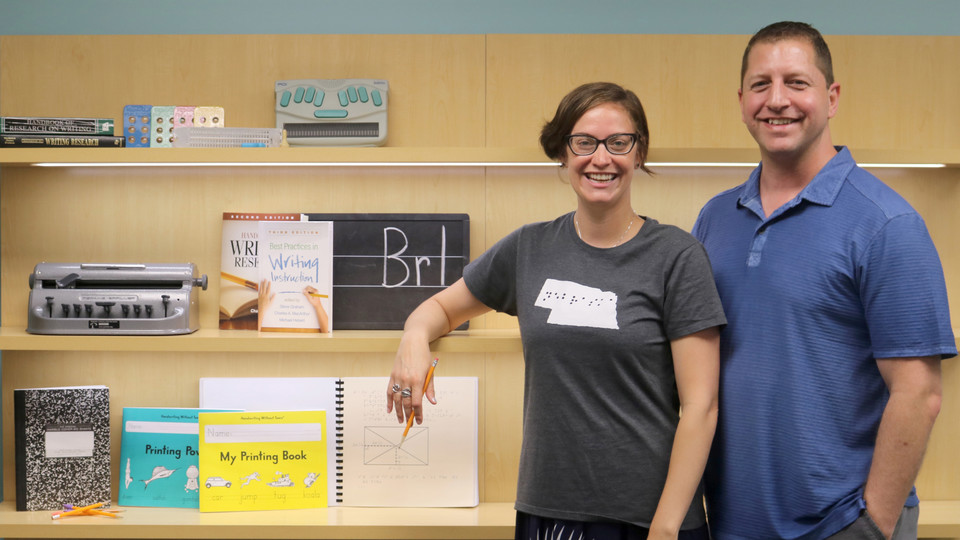Special Education and Communication Disorders
Kelcey Buck, July 24, 2019
Project explores how visually impaired children are taught to write
Researchers at the University of Nebraska–Lincoln are aiming to better understand how students with visual impairments are being taught to write.
Funded by a $1.4 million grant from the Institute of Education Sciences, Project VIEW, which stands for Visual Impairments Education in Writing, is a four-year study led by associate professor Michael Hebert and assistant professor of practice Mackenzie Savaiano.
The project will assess the quantity and quality of writing instruction, as well as adaptations and accommodations made to writing instruction, for students with visual impairments in Nebraska.
Hebert and Savaiano will also examine factors such as teachers’ preparation to teach writing, preparation to teach students with visual impairments and the collaboration between general education teachers and teachers of students with visual impairments.
Prior to Project VIEW, Hebert and Savaiano frequently discussed the way students with visual impairments are taught to write. Through those discussions, they realized there may be a disconnect between teachers who are specially trained to help the students and those who aren’t.
“Our main questions was, who is teaching writing skills to these students and what accommodations are being made?,” Hebert said. “We hope to learn more about what these teachers are doing and what is working best when it comes to the students’ outcomes.”
Hebert and Savaiano hope to include 50 teachers of students with visual impairments in the project, which account for nearly 80 percent of the state’s trained staff. A wide variety of students will be included in the study — from children who write using braille to those with multiple disabilities who may write in alternative ways.
The researchers hope that the findings from Project VIEW make it so that all students with visual impairments in Nebraska will benefit from improved writing instruction.
“Eventually, we’re hoping that we identify the types of evidence-based practices and collaboration strategies that teachers are using,” Hebert said. “Then, we want to build on what they’re already doing and potentially develop interventions that we can employ.”
The Nebraska Center for Research on Children, Youth, Families and Schools is providing assistance with methodology and data analysis, along with database and website development. Natalie Koziol, research assistant professor, and James Bovaird, director of the Nebraska Academy for Methodology, Analytics and Psychometrics, will contribute to the project.
Project VIEW is supported through grant award number R324A190183 from the Institute of Education Sciences. The content is solely the responsibility of the authors and does not necessarily represent the official views of the Institute of Education Sciences.
Children and Families Education Special Education and Communication Disorders






